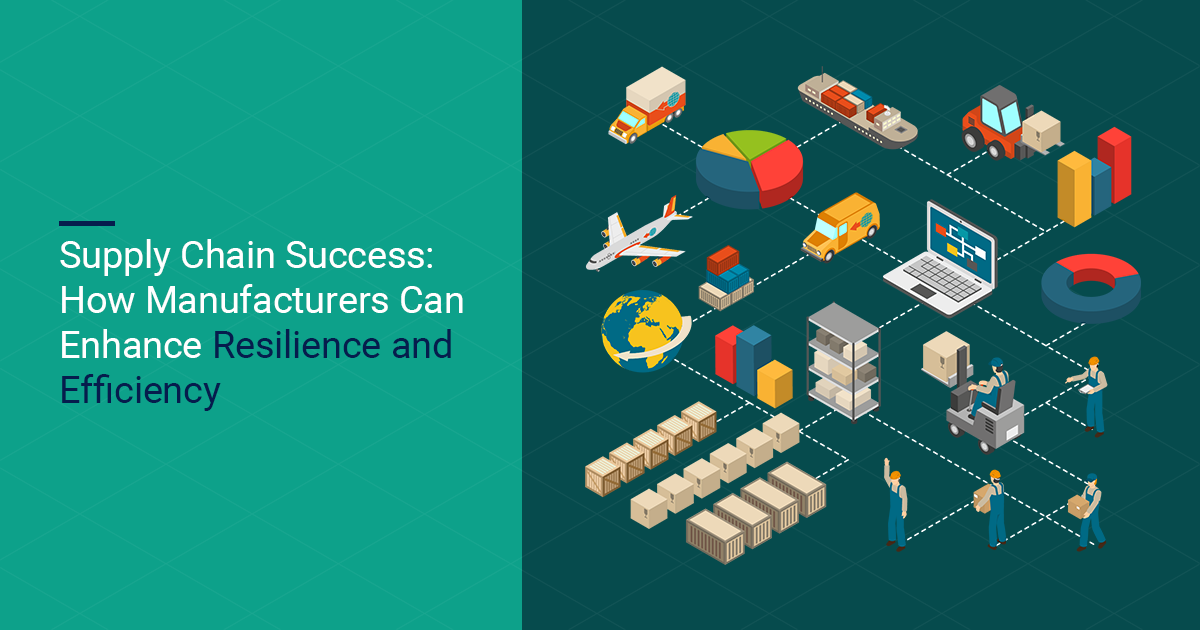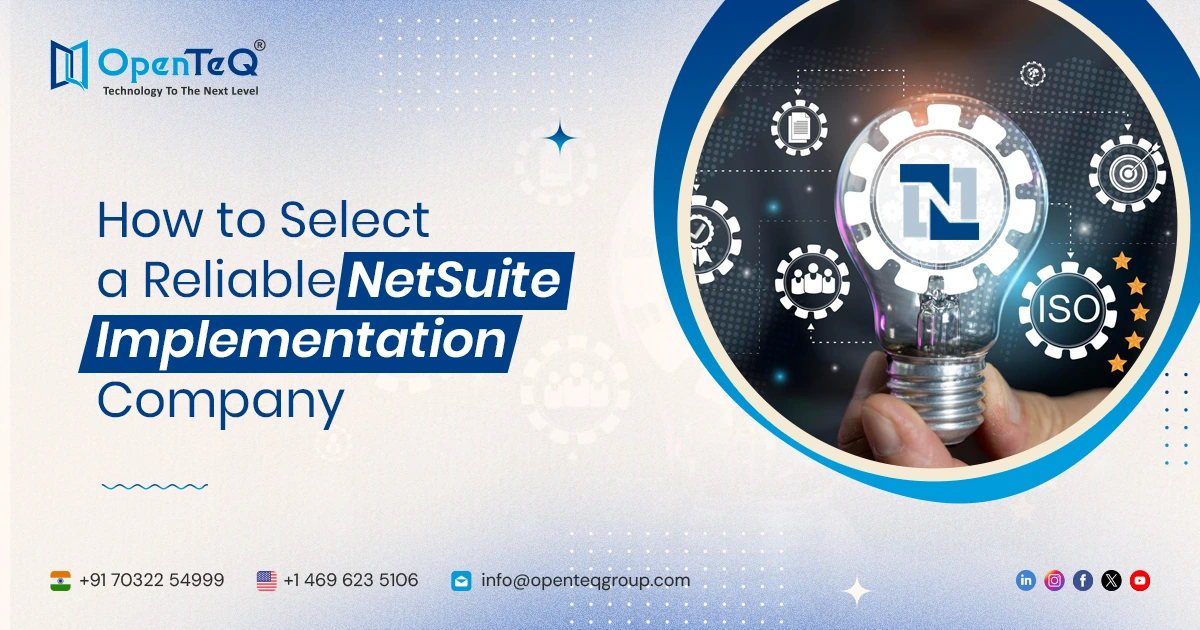Supply Chain Success: How Manufacturers Can Enhance Resilience and Efficiency
A robust supply chain is essential for any manufacturing organization to succeed in the modern global economy, as supply chain disruptions can harm a company's operations, reputation, and financial health. Manufacturers need to fortify their supply chain to withstand disruptions and the difficulties they provide, like sluggish transit, untrustworthy suppliers, fluctuating demand, and unpredictability in the market. This article examines methods for improving the supply chain, such as using new technology, forming reliable alliances, improving inventory control, moving activities, and more. These strategies can help manufacturers better manage risks, boost productivity and customer satisfaction, improve their ability to adapt to changes in the global supply chain, and obtain a competitive advantage in the market.
11 Strategies for Manufacturers to Boost Their Supply Chains
To meet changing customer expectations and constantly shifting global supply networks, strengthening the supply chain must be seen as an ongoing effort. Although every business faces different problems that call for different solutions, these 11 tactics help improve the industrial supply chain in practically every case.
1. Put contemporary technological solutions into practice.
Manufacturers can now see more clearly throughout the supply chain due to modern technology, which provides more precise and current data to help with decision-making. Businesses can increase productivity and efficiency by automating some procedures, such as inventory control and reordering, to make sure that raw material and finished product levels are optimal to balance on-hand stock while lowering carrying costs. Enterprise resource planning (ERP) systems, which manufacturers frequently utilize to provide managers with an easily available overview of the supply chain, are useful for identifying and resolving inefficiencies before they lead to bottlenecks or other significant issues.
2. Establish trusting ties with vendors.
Suppliers are where the supply chain process starts. For manufacturers to have the raw materials required to make things, they must have faith in and depend on their suppliers. Manufacturers may better convey their demands to their suppliers and plan for shortages, delays, and other challenges by building strong and mutually trusting relationships with them. Benefits including priority access to hard-to-get materials, cost savings through exclusive discounts, and dependable delivery can also be arranged by manufacturers.
NetSuite for Manufacturing is a game-changer in the industry, offering robust Manufacturing ERP & Management Software designed specifically for manufacturing companies. With NetSuite ERP Software for Manufacturing Companies, businesses can streamline operations, optimize production processes, and gain real-time insights into their supply chains.
3. Define protocols and communication during interruptions.
Although supply chain disruptions are inevitable, companies can reduce the risks by properly preparing. For instance, a lot of manufacturers employ a variety of suppliers or transporters to provide options in case of an unplanned outage. In the same way, producers might have several sites spread throughout various regions, enabling them to increase output in response to a stoppage in one location. However, the timely execution of these goals requires efficient communication and well-thought-out tactics.
4. Put lean concepts into practice.
Many factories aim for a "just in time" (JIT) inventory management system, where raw materials are ordered when needed and unsold goods and unused materials are kept to a minimum, to stay competitive and cut waste. In the past, companies maintained more inventory on hand to guarantee that there would always be enough to satisfy demand.
Businesses are getting closer than ever to meeting demand without overproducing as more and more rely on technology and automation to gather precise data, including external market data and internal sales data. This allows businesses to generate more accurate forecasts. This lowers waste and carrying costs without irritating consumers with back orders and delays. By avoiding storerooms full of out-of-style goods, lean principles can also allow organizations greater flexibility to adapt to changes in client demand or supply chain movements.
NetSuite Partners with OpenTeQ Technologies to Streamline Business Operations
5. Make use of analytics
To make sure supply chain enhancements are fulfilling goals and functioning as planned, they must be monitored and evaluated. Key performance indicators (KPIs) should be tracked and analyzed by manufacturers to promptly spot trends and weaknesses. Metrics like supply cost fluctuations, product-specific sales statistics, and inventory turnover rates should all be examined to identify areas where the company may make improvements. Businesses can obtain comprehensive, data-driven reports on these and other KPIs from a number of supply chain management and ERP systems, providing analysts with the resources they need to fortify their supply networks.
NetSuite for Manufacturers is revolutionizing the way manufacturing companies operate with its tailored ERP solutions. Built specifically for manufacturers, NetSuite ERP for Manufacturers offers comprehensive tools to streamline processes, manage inventory efficiently, and optimize production workflows.
6. Reshored or near-shore operations.
Breakdowns in the global supply chain can be triggered by anything from a blocked canal to a change in global politics, and they are frequently unpredictable. To reduce these risks, manufacturers frequently relocate part or all of their overseas operations—either by reshoring or outsourcing to a nearby, or near-shore, operation. Reshoring frequently results in lower shipping costs and lead times, providing firms more control over when things are produced and delivered, even when local rules may raise some expenses, such as labor or materials.
7. Promote an environment that is always improving.
Because of new developments, modifications to the global supply chain, and evolving market trends, supply chain improvement is a continual process that calls for constant examination. Ultimately, what functions well in one market may not be as effective in another. Employees on the ground are an asset for ongoing supply chain improvements since they are among the best tools available to businesses for identifying inefficiencies. Establishments where labor and management have open lines of communication can promptly detect deficiencies and take appropriate action before they become significant issues.
Manufacturing with NetSuite enables businesses to achieve operational excellence by gaining real-time visibility into all aspects of their operations—from procurement to delivery. With NetSuite, manufacturers can enhance collaboration, minimize costs, and maximize productivity, driving growth and competitiveness in the industry.
8. Put sustainable principles into action.
Companies can cut expenses, get ready for the future, and satisfy consumer demand for "green" products by integrating sustainable and ecologically friendly business practices into their supply chains. Businesses can lower their electricity expenses and, in many cases, maximize downtime to extend equipment lifespans by investing in energy-saving technology, which ranges from basic eco-friendly lightbulbs to highly efficient manufacturing machines. Businesses can also benefit from getting ahead of the curve when new environmental standards are enacted and rivals race to meet new regulatory deadlines by making early investments in more efficient material. Businesses frequently consume the most energy throughout the manufacturing supply chain, therefore it's helpful to pinpoint these locations where sustainable practices might have an impact.
9. Evaluate suppliers on a regular basis.
Although a supplier could have been the best option when the contracts were first signed, other possibilities might become available later, either as backup or extra suppliers or as replacements. Businesses can be sure they are receiving the best value for their raw materials by regularly evaluating suppliers and looking into other choices. Additionally, evaluations can reveal potential vulnerabilities and provide a deeper understanding of the vendor's function in the supply chain, if the original source is still the best option.
10. Simplify procedures.
Process simplification strengthens the supply chain by lowering bottlenecks and standardizing procedures. In the event of supply chain disruptions or adjustments, a streamlined supply chain helps firms quickly alter their path by removing pointless operations and enhancing coordination, which in turn shortens lead times and increases order fulfillment rates. Many companies combine various business activities into a single, centralized platform by using automation and an ERP system. Businesses benefit from increased productivity, more dependable and robust data, and open and accessible communication. For instance, teams can more easily interact and share data to expedite order fulfillment and provide consumers with more precise information about current stock levels and delivery predictions by integrating production and sales.
11. Create a thorough risk management strategy.
Regardless of how well a company plans, unanticipated supply chain disruptions can always happen. A company's chances of surviving a hurricane are higher the more backup measures it has in place. To develop a strong risk management strategy, businesses must be able to recognize and reduce any risks. To do this, they require visibility into every stage of the supply chain, from the acquisition of raw materials to the delivery of finished goods.
Leverage NetSuite to Manage Your Supply Chain More Efficiently
NetSuite Solutions for Manufacturing are designed to enhance efficiency and agility in production processes. With NetSuite Portals for Manufacturing, businesses can streamline communication and collaboration with suppliers, vendors, and partners. These solutions offer seamless integration of inventory management, production planning, and order fulfillment, enabling manufacturers to make informed decisions in real-time.
NetSuite's comprehensive suite of tools empowers manufacturing companies to optimize operations, reduce costs, and scale their businesses effectively. Embrace NetSuite Solutions for Manufacturing to drive innovation and competitiveness in your industry.
Contact OpenTeQ Technologies today at info@openteqgroup.com or contact at +91 7032254999 / +1-602 806 4634







